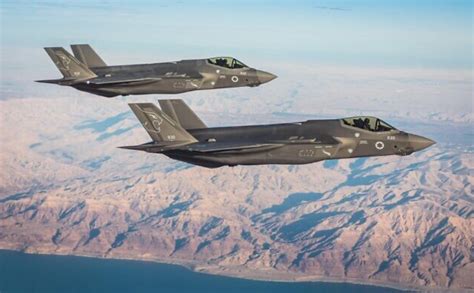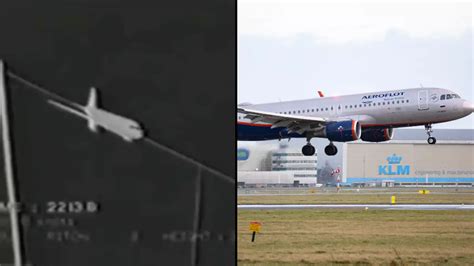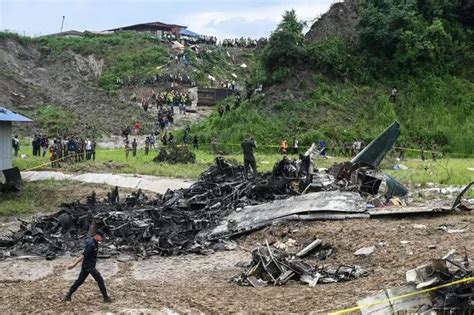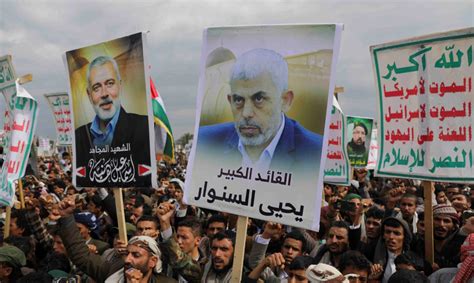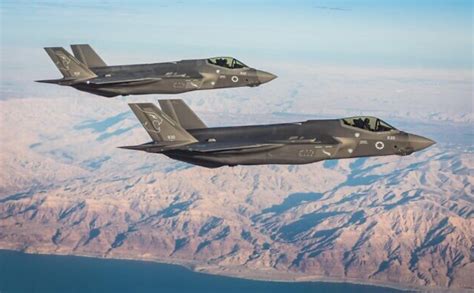
Iran’s state-backed media reported the downing of an Israeli F-35 fighter jet by its air defenses near Natanz, a site housing key nuclear facilities, while Israel has vehemently denied the claim, dismissing it as “false.” The alleged incident, reported on Friday, has further heightened tensions in a region already fraught with conflict and suspicion, particularly amid ongoing concerns regarding Iran’s nuclear program.
Tehran Claims Downing of Israeli F-35 Near Nuclear Site; Israel Denies
Iranian state media outlets, including the Islamic Republic News Agency (IRNA), disseminated reports on Friday alleging that the country’s air defense systems had successfully downed an Israeli F-35 stealth fighter near the city of Natanz. Natanz is a strategically significant location, home to one of Iran’s primary uranium enrichment facilities, a focal point in the international dispute over Tehran’s nuclear ambitions.
The Iranian reports cited an unnamed source stating that the downing was in response to recent “hostile actions” by Israel. Details regarding the type of air defense system used and the precise location of the incident remained scarce. However, the claim immediately drew considerable attention, given the advanced capabilities of the F-35 and the sensitivity surrounding Iran’s nuclear infrastructure.
In swift response, Israeli military officials categorically denied the Iranian claim. A spokesperson for the Israel Defense Forces (IDF) stated, “There has been no such incident. The report is completely false.” This denial was echoed by other Israeli officials, who dismissed the Iranian report as propaganda intended to escalate tensions.
The timing of the alleged incident and the subsequent denials adds another layer of complexity to the already strained relationship between Iran and Israel. Both nations have been engaged in a shadow war for years, with accusations of cyberattacks, sabotage, and targeted killings leveled against each other. The alleged downing of an F-35, if confirmed, would represent a significant escalation in this ongoing conflict.
Context of Rising Tensions
The claim of downing an Israeli F-35 comes amid heightened tensions in the Middle East. Negotiations aimed at reviving the 2015 Iran nuclear deal, formally known as the Joint Comprehensive Plan of Action (JCPOA), have stalled, leaving Iran under stringent sanctions imposed by the United States. Iran has gradually rolled back its commitments under the JCPOA in response to these sanctions, leading to concerns about its nuclear program’s advancement.
Israel has consistently opposed the JCPOA, viewing it as insufficient to prevent Iran from developing nuclear weapons. Israeli officials have repeatedly stated that they reserve the right to take military action to prevent Iran from acquiring nuclear capabilities. These threats, coupled with alleged covert operations inside Iran, have fueled speculation about a potential direct confrontation between the two countries.
The Natanz nuclear facility has been a frequent target of attacks, attributed by Iran to Israel. In April 2021, a major explosion at the facility caused significant damage, disrupting uranium enrichment activities. Iran blamed Israel for the attack and vowed retaliation.
The recent reports of the alleged downing of an F-35 must be viewed in the context of this escalating conflict and the stalled nuclear negotiations. It is possible that the Iranian claim is intended to project strength and deter further Israeli actions. Alternatively, it could be a misinterpretation of an unrelated event or an attempt to garner international attention to Iran’s grievances.
Details of the Alleged Incident
According to Iranian media, the incident occurred near Natanz in central Iran. Natanz is home to one of Iran’s largest uranium enrichment facilities, a key component of its nuclear program. The facility is located deep underground, purportedly to protect it from aerial attacks.
The Iranian report did not provide details on the type of air defense system used to allegedly down the F-35. Iran has significantly upgraded its air defense capabilities in recent years, acquiring systems from Russia and developing its own indigenous technologies. Some analysts speculate that Iran may have deployed the Russian-made S-300 air defense system around Natanz, although this has not been confirmed.
The report also did not specify the extent of damage to the F-35 or the fate of its pilot. Given the Israeli denial, it is unlikely that any concrete evidence of the downing will be publicly released.
Israeli Denial and Counter-Narrative
Israel has vehemently denied the Iranian claim, dismissing it as “fake news” and propaganda. Israeli officials have not provided any further details to counter the Iranian narrative, but they have reiterated their commitment to protecting Israel’s security.
The Israeli military is known for its advanced capabilities, including its fleet of F-35 stealth fighters. The F-35 is considered one of the most advanced combat aircraft in the world, with stealth technology that makes it difficult to detect by radar.
If an F-35 were indeed downed, it would be a major blow to Israel’s military prestige and would raise questions about the effectiveness of its air defenses. Therefore, Israel has a strong incentive to deny the claim, even if there is some truth to it.
Implications for Regional Security
The conflicting claims surrounding the alleged downing of an F-35 have significant implications for regional security. If the Iranian claim is true, it would demonstrate Iran’s growing air defense capabilities and its willingness to confront Israel directly. This could embolden Iran to take more aggressive actions in the region, potentially leading to a wider conflict.
Even if the Iranian claim is false, it serves to escalate tensions and deepen the mistrust between Iran and Israel. The two countries are already engaged in a shadow war, and the exchange of accusations and denials only serves to exacerbate the situation.
The international community has called for restraint and de-escalation. However, the prospects for a peaceful resolution to the conflict remain slim. The stalled nuclear negotiations and the ongoing tensions in the region make it difficult to find common ground.
Expert Analysis and Commentary
Military analysts and experts have offered various perspectives on the alleged incident. Some believe that the Iranian claim is credible, given Iran’s improved air defense capabilities and its history of downing enemy aircraft. Others are skeptical, citing Israel’s advanced military technology and its strong incentive to deny the claim.
“It is difficult to verify the Iranian claim without independent confirmation,” said a defense analyst at the Center for Strategic and International Studies. “However, it is important to take the report seriously, given the potential implications for regional security.”
“The Israeli denial is not surprising,” said a former intelligence officer. “Israel would not want to admit that one of its F-35s was downed, as it would undermine its military credibility.”
The lack of independent verification and the conflicting narratives make it difficult to ascertain the truth. However, the incident serves as a reminder of the volatile situation in the Middle East and the potential for escalation.
Historical Precedents and Context
The current tensions between Iran and Israel are not new. The two countries have been adversaries since the 1979 Iranian Revolution, which ousted the U.S.-backed Shah and established an Islamic Republic.
Iran has long accused Israel of supporting separatist groups and carrying out covert operations inside its territory. Israel, in turn, accuses Iran of supporting terrorist groups and developing nuclear weapons.
The two countries have engaged in several proxy wars in recent years, including in Syria, Lebanon, and Yemen. They have also exchanged cyberattacks and engaged in economic warfare.
The JCPOA, signed in 2015, was intended to ease tensions by limiting Iran’s nuclear program in exchange for sanctions relief. However, the agreement was unilaterally abandoned by the United States in 2018, leading to renewed tensions and a return to confrontation.
International Reactions
The international community has reacted cautiously to the conflicting claims surrounding the alleged downing of an F-35. Many countries have called for restraint and de-escalation, urging Iran and Israel to avoid any actions that could further escalate tensions.
The United States has reiterated its support for Israel’s security but has also urged both sides to exercise caution. The European Union has called for a return to the JCPOA and for a peaceful resolution to the conflict.
Russia and China, both of which have close ties to Iran, have expressed concern about the escalating tensions and have called for a diplomatic solution.
Future Outlook
The future outlook for the region remains uncertain. The stalled nuclear negotiations and the ongoing tensions between Iran and Israel make it difficult to predict what will happen next.
Some analysts believe that a direct confrontation between Iran and Israel is inevitable. Others believe that the two countries will continue to engage in a shadow war, with occasional escalations but without a full-scale conflict.
The key to preventing a wider conflict is to find a way to revive the JCPOA and address the underlying issues that are driving the tensions between Iran and Israel. However, this will require a significant shift in political will and a willingness to compromise on both sides.
Impact on Global F-35 Operations and Confidence
Regardless of the veracity of Iran’s claims, the incident raises concerns about the vulnerability of the F-35 in contested airspace. Even if no aircraft was downed, the perception of increased risk could influence deployment strategies and operational doctrines for nations utilizing the F-35. Allies of the United States who have invested heavily in the platform may seek reassurances and potentially re-evaluate their own air defense strategies to counter evolving threats. A confirmed downing, however, would trigger a comprehensive review of the F-35’s capabilities and survivability against advanced air defense systems.
Influence on Nuclear Negotiations
The reported incident and the subsequent war of words add another layer of complexity to the already fraught negotiations surrounding Iran’s nuclear program. The heightened tensions could harden positions on both sides, making it even more difficult to reach a mutually acceptable agreement. Iran might leverage the alleged downing to demonstrate its resolve and to demand more concessions from the international community. Conversely, Israel might use the incident to reinforce its argument that Iran cannot be trusted and that a more stringent deal is necessary.
Cyber Warfare Component
Beyond the physical realm, the conflict between Iran and Israel is also playing out in cyberspace. Both countries have been accused of launching cyberattacks against each other’s critical infrastructure. The alleged downing of the F-35 could be linked to cyber warfare, with either side attempting to gain an advantage through digital means. For instance, Iran might claim to have used cyber tools to disrupt the F-35’s systems, while Israel might attempt to spread disinformation about Iran’s air defense capabilities.
Analysis of Potential Iranian Motives
Several potential motives could explain Iran’s decision to announce the downing of an Israeli F-35, regardless of its accuracy:
- Deterrence: The announcement could serve as a deterrent against future Israeli strikes on Iranian targets, particularly its nuclear facilities. By projecting an image of strength and demonstrating its ability to inflict damage on Israel’s most advanced aircraft, Iran might hope to dissuade Israel from launching further attacks.
- Domestic Consumption: The claim could be intended to boost morale and rally support for the Iranian government at home. In the face of economic hardship and international pressure, the announcement could be used to project an image of strength and resilience.
- Propaganda: The announcement could be part of a broader propaganda campaign aimed at undermining Israel’s credibility and sowing discord among its allies. By spreading doubts about the F-35’s invincibility, Iran might hope to damage Israel’s reputation and influence international opinion.
- Bargaining Chip: The announcement could be used as a bargaining chip in future negotiations with the international community. By demonstrating its ability to defend itself against Israeli aggression, Iran might hope to gain leverage in discussions about its nuclear program and sanctions relief.
Impact on U.S.-Israel Relations
The incident, whether true or fabricated, could also strain relations between the United States and Israel. If the U.S. believes that Israel took unauthorized action that provoked the Iranian response, it could express its displeasure and potentially withhold support. Conversely, if the U.S. believes that Iran’s claim is false and that Israel is being unfairly targeted, it could reaffirm its commitment to Israel’s security and provide additional assistance.
Detailed Examination of F-35 Capabilities and Vulnerabilities
The F-35 Lightning II is a fifth-generation stealth fighter known for its advanced technology, including its radar-evading capabilities, sensor fusion, and electronic warfare systems. However, even the most advanced aircraft have vulnerabilities.
- Stealth Limitations: While the F-35 is designed to be difficult to detect by radar, its stealth capabilities are not absolute. Certain types of radar, particularly low-frequency radar, may be able to detect the aircraft at longer ranges. Additionally, the F-35’s stealth coating can be degraded by damage or wear and tear.
- Electronic Warfare Vulnerabilities: The F-35 relies heavily on its electronic warfare systems to jam enemy radar and communications. However, these systems can be vulnerable to countermeasures, such as advanced anti-jamming techniques.
- Cybersecurity Risks: As a highly computerized aircraft, the F-35 is also susceptible to cyberattacks. A successful cyberattack could potentially disable the aircraft’s systems or compromise its data.
- Maintenance Requirements: The F-35 is a complex aircraft that requires extensive maintenance. Delays in maintenance or a shortage of spare parts could reduce the aircraft’s availability and operational readiness.
- Pilot Skill and Training: Even with its advanced technology, the F-35’s effectiveness depends on the skill and training of its pilot. A poorly trained pilot could be more vulnerable to enemy fire, even in an advanced aircraft.
Conclusion
The conflicting claims surrounding the alleged downing of an Israeli F-35 by Iran highlight the precarious security situation in the Middle East. While Israel vehemently denies the report, the incident underscores the ever-present potential for escalation between the two adversaries. The veracity of the claim remains uncertain, but its ramifications, regardless of its accuracy, are significant. It impacts regional stability, influences nuclear negotiations, and affects the confidence in advanced military technology. As tensions persist, the international community’s role in de-escalation and diplomatic engagement remains crucial to prevent further conflict and maintain regional security.
Frequently Asked Questions (FAQ)
Q1: Did Iran actually shoot down an Israeli F-35 fighter jet?
A1: Iran claims its air defenses downed an Israeli F-35 near Natanz, a site with nuclear facilities. Israel strongly denies this claim, calling it “false” and propaganda. There is no independent confirmation of the event.
Q2: Why is this incident significant?
A2: If true, the downing of an F-35 would represent a major escalation in the ongoing shadow war between Iran and Israel and would demonstrate Iran’s improved air defense capabilities. Even if false, the claim exacerbates tensions and deepens mistrust in the region.
Q3: What are the potential motives behind Iran’s claim?
A3: Possible motives include deterring future Israeli strikes, boosting domestic morale, undermining Israel’s credibility through propaganda, and gaining leverage in future negotiations regarding its nuclear program.
Q4: What implications does this have for the Iran nuclear deal (JCPOA)?
A4: The incident further complicates already stalled negotiations to revive the JCPOA. Heightened tensions could harden positions on both sides, making it more difficult to reach a mutually acceptable agreement.
Q5: How might this affect relations between the United States and Israel?
A5: The incident could strain relations if the U.S. believes Israel provoked the Iranian response without authorization. Conversely, if the U.S. believes the claim is false and Israel is being unfairly targeted, it could reaffirm its commitment to Israel’s security.
Expanded Contextual Information
The F-35 and Regional Power Dynamics
The F-35’s presence in the Middle East significantly alters the regional power balance. Israel was the first country in the region to acquire the F-35, granting it a qualitative edge in airpower. The aircraft’s stealth capabilities allow it to penetrate enemy airspace undetected, gather intelligence, and strike targets with precision. Other countries in the region, such as the United Arab Emirates, have also expressed interest in acquiring the F-35, further fueling the arms race.
Iran views the F-35 as a major threat to its national security. The aircraft’s ability to operate undetected in Iranian airspace allows Israel to conduct surveillance missions and potentially launch preemptive strikes against its nuclear facilities. Iran has invested heavily in its air defense capabilities in recent years in an effort to counter the F-35 threat.
Iran’s Air Defense Capabilities
Iran has a multi-layered air defense system that includes a mix of domestically produced and foreign-made systems. The core of Iran’s air defenses is the Russian-made S-300 surface-to-air missile system. The S-300 is a long-range, high-altitude system capable of engaging multiple targets simultaneously.
Iran has also developed its own indigenous air defense systems, such as the Bavar-373. The Bavar-373 is designed to be comparable to the S-300 and is capable of engaging a wide range of targets, including aircraft, cruise missiles, and ballistic missiles.
In addition to these long-range systems, Iran also has a network of short-range air defense systems, such as the Tor-M1 and the Pantsir-S1. These systems are designed to protect critical infrastructure from low-flying aircraft and drones.
Cyber Dimensions of the Conflict
Cyber warfare has become an increasingly important aspect of the conflict between Iran and Israel. Both countries have been accused of launching cyberattacks against each other’s critical infrastructure, including power grids, water systems, and financial institutions.
Iran has been particularly active in the cyber realm, using its cyber capabilities to target Israel and other countries in the region. Iranian hackers have been linked to numerous cyberattacks, including the 2020 attack on Israel’s water system and the 2021 attack on the Colonial Pipeline in the United States.
Israel is also believed to have a highly developed cyber warfare capability. Israeli hackers have been accused of launching cyberattacks against Iranian nuclear facilities and other sensitive targets.
The Role of International Actors
The conflict between Iran and Israel is not confined to the two countries themselves. Numerous international actors have a stake in the outcome of the conflict, including the United States, Russia, China, and the European Union.
The United States is Israel’s closest ally and has provided it with billions of dollars in military aid. The U.S. has also imposed sanctions on Iran in an effort to curb its nuclear program and its support for terrorism.
Russia has close ties to Iran and has provided it with military and economic assistance. Russia has also been critical of U.S. sanctions on Iran.
China has growing economic ties with Iran and has become a major importer of Iranian oil. China has also been critical of U.S. policy towards Iran.
The European Union has sought to maintain a neutral stance in the conflict between Iran and Israel. The EU has supported the JCPOA and has called for a peaceful resolution to the conflict.
The Future of the Conflict
The future of the conflict between Iran and Israel is uncertain. Several factors could contribute to an escalation of the conflict, including a failure to revive the JCPOA, a miscalculation by either side, or a deliberate act of provocation.
A direct confrontation between Iran and Israel would have devastating consequences for the region and the world. It is therefore essential that all parties exercise restraint and work towards a peaceful resolution of the conflict.
Economic Impact
The ongoing tensions and the potential for escalation between Iran and Israel have significant economic implications for the region and beyond. Increased uncertainty and instability can deter foreign investment, disrupt trade, and lead to higher insurance premiums for shipping and transportation. A direct conflict would likely cause significant damage to infrastructure, disrupt oil supplies, and further destabilize the global economy. Moreover, increased military spending by both sides diverts resources from other sectors, such as education, healthcare, and economic development.
Geopolitical Ramifications Beyond the Region
The conflict between Iran and Israel has far-reaching geopolitical ramifications that extend beyond the Middle East. The rivalry influences the alignment of nations, affects global energy markets, and complicates international efforts to address nuclear proliferation. Major powers, such as the United States, Russia, and China, are compelled to navigate the complex dynamics of the region, balancing their own strategic interests with the need to maintain stability. The conflict also impacts international alliances and partnerships, as countries are forced to choose sides or seek to mediate between the warring parties.
Social and Cultural Dimensions
Beyond the political and military dimensions, the conflict between Iran and Israel also has profound social and cultural impacts. The animosity between the two countries fuels sectarian tensions, exacerbates existing societal divisions, and contributes to the spread of misinformation and propaganda. The conflict also affects the lives of ordinary citizens, who often bear the brunt of economic hardship, political repression, and violence. Moreover, the cultural exchange and dialogue between Iran and Israel have been severely limited, hindering efforts to promote understanding and reconciliation.
The Role of Non-State Actors
Non-state actors, such as Hezbollah and Hamas, play a significant role in the conflict between Iran and Israel. Iran provides financial and military support to these groups, which have launched numerous attacks against Israel. These non-state actors add another layer of complexity to the conflict, making it more difficult to resolve through traditional diplomatic means. They also complicate efforts to de-escalate tensions and prevent a wider war.
Long-Term Strategic Implications
The conflict between Iran and Israel has long-term strategic implications for the Middle East and the world. The rivalry shapes the geopolitical landscape of the region, influences the arms race, and complicates efforts to address other pressing challenges, such as climate change, poverty, and terrorism. A prolonged conflict could lead to further fragmentation of the region, the rise of extremist groups, and the erosion of international norms and institutions. Addressing the root causes of the conflict and promoting a lasting peace is essential for ensuring stability and prosperity in the Middle East and beyond.
The Perspective of the Iranian Public
Understanding the perspective of the Iranian public is crucial to comprehending the dynamics of the conflict. While the Iranian government’s official stance is one of hostility towards Israel, the views of the Iranian people are more nuanced. Many Iranians are critical of the government’s policies and express a desire for better relations with the West. However, they are also wary of foreign interference in their affairs and resent what they perceive as Israeli aggression. Understanding these competing sentiments is essential for formulating effective policies towards Iran and promoting dialogue between the two countries.
The Impact on the Palestinian Issue
The conflict between Iran and Israel is inextricably linked to the Palestinian issue. Iran has long been a supporter of the Palestinian cause and has provided financial and military assistance to Hamas and other Palestinian militant groups. Israel views Iran’s support for these groups as a major threat to its security. The Palestinian issue serves as a major point of contention between Iran and Israel and complicates efforts to resolve the broader conflict.
The Evolution of Military Doctrines
The ongoing conflict between Iran and Israel has influenced the evolution of military doctrines on both sides. Iran has adopted asymmetric warfare tactics to counter Israel’s superior military capabilities, while Israel has developed new strategies to defend against Iranian proxies and to deter Iranian aggression. These evolving military doctrines shape the nature of the conflict and influence the types of weapons and technologies that both sides develop and deploy.
The Ethics of Warfare
The conflict between Iran and Israel raises important ethical questions about the conduct of warfare. Both sides have been accused of violating international humanitarian law, including targeting civilians and using disproportionate force. These ethical concerns highlight the need for greater accountability and for mechanisms to prevent future abuses.
The Importance of Diplomacy and De-escalation
Given the high stakes involved, diplomacy and de-escalation are essential for preventing a wider war between Iran and Israel. The international community must work to create opportunities for dialogue and to encourage both sides to exercise restraint. A comprehensive approach that addresses the underlying causes of the conflict and promotes a lasting peace is urgently needed.
The Long-Term Impact on Global Security
The conflict between Iran and Israel has significant long-term implications for global security. A wider war could destabilize the Middle East, disrupt energy supplies, and lead to a surge in terrorism. Preventing such a scenario is therefore a top priority for the international community. A sustained effort to promote diplomacy, de-escalation, and conflict resolution is essential for ensuring global security and prosperity.
The Potential for a New Regional Order
The conflict between Iran and Israel could potentially lead to a new regional order in the Middle East. The outcome of the conflict could reshape alliances, alter power dynamics, and influence the future of the region for decades to come. Understanding the potential scenarios and preparing for the challenges ahead is crucial for policymakers and analysts.






